We’re excited to introduce our new Facebook group Living Low Impact – and you’re invited!
Curated by the team here at Lowimpact.org, it’s a space to embrace and exchange low-impact means of living: from the food we eat to how to grow it, the homes we live in to how to build them and the livelihoods we pursue around them. We recognise that no one size fits all and aim to provide an open, non-judgemental forum in which we can support each other to learn new skills and consider different approaches towards more sustainable everyday living.
With resources covering over 200 topics here on the site, we’ll be signposting members to the latest information, resources and courses on offer from our directory network and beyond, as well as sharing news and views from this very blog. The most important ingredient in all of this, however, is you, our members.
The group is growing every day and it’s proving to be a diverse, inspirational and international mix so far. We’ve already met smallholders, allotmenteers, self-builders, canal-boat dwellers, students, gardeners, tiny house advocates, city dwellers, natural builders, up-cyclers, recyclers, crafters of all kinds and many more besides. It’s the perfect place for anyone unsure quite where to start with low-impact living and we’re firm believers that there is no such thing as a silly question. Chances are we’ll have it covered, whether it’s getting started growing your own veg, learning to knit or even building a house.
So if you’ve got low-impact living views, news, tools, tips or simply a whole lot of questions, now’s the time to come on over and get stuck in. Simply search for Live Low Impact under groups or visit us directly at www.facebook.com/groups/livinglowimpact/. We look forward to seeing you there. Oh, and if any of your friends or family might be interested too, please do feel free to extend the invitation!
 Sophie Paterson is a member of the Lowimpact.org team and looks after all things social media related, amongst other things. As administrator and moderator for the Living Low Impact Facebook group and Lowimpact.org Facebook page, she’s your main port of call for any queries, questions or suggestions you might have about they are run and what might improve them. Feel free to get in touch via Facebook here.
Sophie Paterson is a member of the Lowimpact.org team and looks after all things social media related, amongst other things. As administrator and moderator for the Living Low Impact Facebook group and Lowimpact.org Facebook page, she’s your main port of call for any queries, questions or suggestions you might have about they are run and what might improve them. Feel free to get in touch via Facebook here.




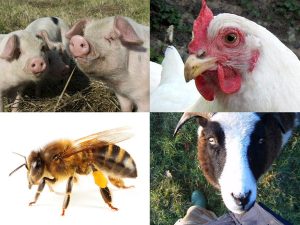
































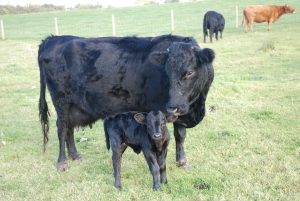
















































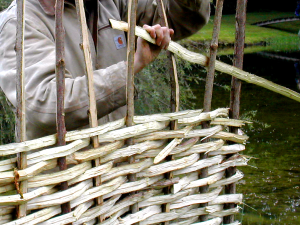










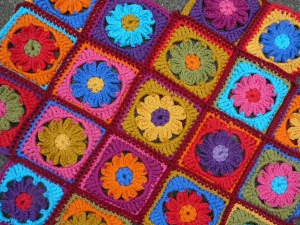






















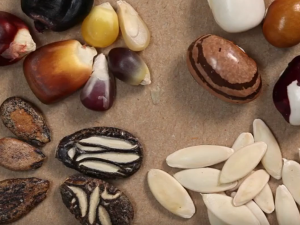



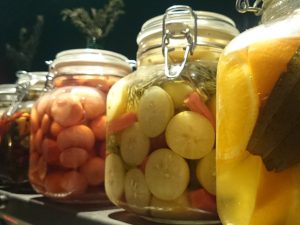























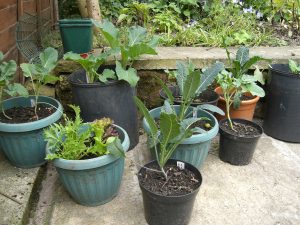



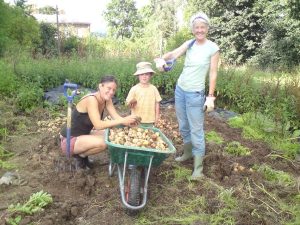




























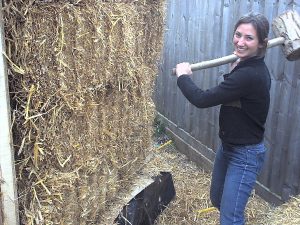
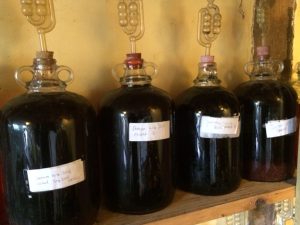








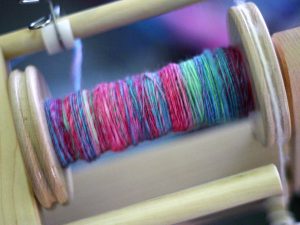















21 Comments
Is it just me that finds a new online community on Facebook uncomfortable – Facebook is a giant corporate that makes it money from analysing and profiling its users to sell advertising. Their behaviour has hardly been ethical and their hapless victims (users) happily give them all their personal information in order to like topics and see fluffy kitten videos.
I appreciate it’s a great marketing move for LI.org but….
Sorry – I keep well away from Facebook – I sincerely hope that as a result of not becoming a member of your new community that I will miss out on the excellent networking and educational opportunities that this current platform provides. Thanks for all you do.
Hi Lin, we know there are plenty of us choosing not to use Facebook so please worry not, all will be continuing as normal here on the site itself with the usual user sign-in, commenting and so on. The new group is an optional extra to what we’re already offering here so rest assured you definitely won’t be missing out. Thanks!
Hi John, thanks for your comment. As I’ve assured Lin below, the new group is an optional extra to what we’re already offering here on the site and compliments our pre-existing Facebook page. I appreciate and understand your feelings and concerns and it is a tricky one. My feeling is that this has to be weighed against the potential benefits of engaging meaningfully with as wide as possible an audience, in the hope that we can also play a role in informing others of the very misgivings you and I share. For what it may be worth, we do not engage with paid-for advertising on Facebook and instead focus on organically building relationships, through both the page and groups.
I find Facebook hugely problematic due to its corporate nature. I’ve come across https://social.coop/about, but haven’t looked into it yet. It’s a co-operatively owned ‘instance’ on Mastodon, a social media network that is non-corporate, based on independent instances rather than a centralised platform.
The problem is, Mastodon doesn’t have the numbers (yet – maybe it will), but Facebook does. So although I don’t use FB for personal stuff, having a page and a group to draw people in to sustainable and non-corporate ideas feels a bit like wandering around Tesco handing out fliers about community-supported agriculture.
Great analogy there, Dave!
This is really sad. The use of fa$ecrook by an organisation like Low Impact is, well, sickening.
A bad day for this organisation 🙁 why use this bunch of off shore crooks and tax dodgers?
There are other, in house options, like BuddyPress, or PHPBB.
Peter, it may be unfortunate, as I said above, but it’s definitely not the sad day that you think it is, as we’ve had a FB page for ten years. This is just a group. This has been discussed over and over again, believe me; and it will be discussed even more for the non-corporate site that’s coming.
The reason we use this bunch of offshore crooks and tax dodgers is to try to convert the mainstream – which is what we exist for, and after all, what’s the use of preaching only to people like you? And the mainstream are on FB.
It’s the same problem when using the internet, as the core infrastructure is corporate; or when driving or filling up a car or motorbike; or using a laptop, or a phone. If you want those things, you’re going to have to give some money to the corporate sector – either that or make your life so difficult that you’ll be ineffective in what you’re trying to achieve.
We’ll never pay FB any money, for advertising or anything else, so as I said above, for me it’s like walking around a corporate supermarket and handing out fliers for veg boxes, CSA, a local farmers’ market etc.
If we want to market what we do to large numbers of people, we’ve got to reach those large numbers of people, and FB is really where they are.
This isn’t a decision we’ve taken lightly, and on balance, we believe that we’ll help more people to engage in our DIY topics, and to come over to the non-corporate, small-scale and local sector, if we sup with the devil just a little bit.
In the same way, if a mainstream media outlet wants to interview me about low-impact living, or about the non-corporate site after it’s launched, then I’ll do it, because we’ll be reaching exactly the people we need to be reaching.
This has been thought about, Peter.
I know, you and Sophie are right 🙁 Sorry for reacting and not responding.
The thought of F.B. and Low Impact is like being a vegan and having to walk through a slaughter house to me…
I know, I over react, *hangs head in shame*
‘The thought of F.B. and Low Impact is like being a vegan and having to walk through a slaughter house to me…’
or an animal rights activist going on a foxhunt.
‘*hangs head in shame*’
Me too – sometimes you just have to hold your nose and think of the greater good.
Thank you for the reply Sophie. However, FB presents its users with posts from pages that its AI system has determined they will like. So, for example, someone who has no interest in gardening would not be presented a gardening post. It reinforces the existing prejudices of users, so right wingers aren’t bothered by posts from left wingers but see instead, more right wing posts.
In fact you engage organically with quite a narrow audience. FB doesn’t challenge its visitors, it just spoon feeds the soma.
Merely by being active on there, you provide FB with content to keep its visitors happy and online to receive more advertising – so the mere act of being there adds to Mr Z’s treasure chest.
Paying for adverts on FB is just giving them money directly rather than indirectly – I can’t see a moral difference. If we’re to accept the ends justify the means, then paid for advertising on FB might actually be better as it would put you in front of an audience that you’ll never reach organically.
FB is great for preaching to the choir but it’s not a missionary.
FB claim to promote community but they’re gated communities and divisive. Why go out onto the WWW when the FB can supply you with all the information and entertainment you want from like-minded people and avoid exposure to alternatives? Apart from shopping on Ebay and Amazon, of course.
John, the sad fact is that if we didn’t use FB, we’d lose a lot of audience. When there’s a popular article on FB, there’s a huge spike in hits. When alternative types like, share or comment, their more mainstream friends will see it – and we’ve all got mainstream friends. Plus the alternative types get information about the topics that we cover, and hopefully some are inspired to give it a go.
And so, we’ve discussed this many times and on balance, to do what we do, we’ve decided it’s best to be on FB for now. Plus this new group is not a huge move – we’ve had a page on FB for ten years, and we have a Twitter account too.
It’s too difficult to live in the modern world and avoid the corporate sector entirely – this is an HP laptop (although it was second-hand), but I’m using Linux; my partner fills up her car with Shell fuel, but I’ve given up my car, she uses public transport whenever she can, and we don’t fly; we don’t get any food from the corporate sector; we’ve shifted to the Phone Co-op and the Nationwide. And so on. But life without the corporate sector altogether, at the moment, would make it too difficult to be able to function properly.
We’re looking at Mastodon / social.coop, and if and when it has numbers and traction (which we really hope it does), we’ll move to that. We’d love to see a non-corporate alternative to FB (and everything else).
Oh Dave, ROFLAO – I appreciate the reasons why a business would use facebook although I resisted until last year, but that’s not the point. It’s a little like an organic farmer saying ‘but if I don’t use Monsanto’s wonderful neonics my crops won’t perform well’ Is visitor numbers the important metric here? As I said, I don’t think you attract new audiences with organic FB placement – you attract those already interested in your intellectual product. If you’re going to do it, then do it properly – buy some post boosts and get some new visitors outside of your box..
There’s an old joke about a man asking a woman to go to bed with him. She refuses so he says “Would you go to bed with me for £1,000?” and she agrees. “Would you go to bed with me for £10?” he says. Indignantly she replies “Of course not, what do you think I am?” – “Well” he answers, “We’ve already established that. Now we’re haggling over the price.”
And now for a word from our sponsors… 🙂
.
John, you can ROFLAO all you like, I still disagree. Personally, I avoid corporate products where there’s a viable alternative, but I still use corporate road fuel, buses, trains, laptop, phone etc. because life would be too difficult if I didn’t. I’m not going to give up my phone or laptop because they were made by corporations, and it’s the same with FB. We get around 75k visitors per month – it would be less than half that without FB. Without numbers we can’t sell books, online courses, get advertisers etc. so we’d go under. So yes, it’s essential right now, but as soon as there’s a viable alternative, we’ll use it. (for example, there’s a co-op producing phones in Indonesia now, so that might be viable soon; and Mastodon might shape up as a FB substitute – but it’s got to get numbers first, or it’s no good to us).
You clearly agree – you’re on FB, and so are Corporate Europe Observatory (https://corporateeurope.org/) who must have done the same sums and came to the same conclusion as us, and held their nose. If FB helps the kind of organisations that are building non-corporate alternatives, then they’re making it more likely that they’ll be co-operativised at some point. Twitter came reasonably close to that recently.
You’ve been very clear as to why you made the choices you have – just to be clear, I don’t have a website promoting a non-corporate agenda and a very different audience base. Visitor numbers and advertisers are important to my ‘business’ but, despite having a non-political face, I have turned down some prospective advertisers for ‘political’ reasons and given support to some others for free. So please don’t use my actions to justify yours – nor those of Corporate Europe Observatory. We have to take responsibility for our own actions.
This is the first time I’ve seen you get prickly online so perhaps you’re not as happy with the choice as you say.
Would you be happy to have “Sponsored by Mega Corp” on the pages? What if they offered a million pounds? 🙂
John has made a good point about preaching to the choir in regards to F.B. Google too, is like an echo chamber as are many other mainstream platforms.
I, and I hope others will put thought to how we connect with the people we need to, whislt not supporting the structures that are helping to destroy society.
Just using F.B. supports and validates it, apart from the cash it sends their way.
Is it really justifyable, even if it does ‘do the job’ which having thought about it now, I’m not so sure..? Could it be that it encourages people to use these toxic platforms as they know they will find ‘us’ there?
We deffinately need to reach out, but I think possibly not via these platforms. I take your point dave about it being just too much to completely opt out, but…
Also, it would be interesting to further analyze those hits the website gets when you post a popular article to F.B.
I’m not happy with the choice at all – I really want there to be an alternative. Maybe we could stop posting on FB for a while to see what happens, but really, that’s where virtually everybody is online, and so it would be suicidal for us I think. The main focus of lowimpact is sustainability (plus my non-corporate blog posts) – the next website is about building a non-corporate society. But that’s a collaboration. I’ve suggested that we don’t use FB, but others have said that we should, or we won’t reach people. I’d be in favour of trying to get lots and lots of websites to put an ad box on their home page (would you?) – as it’s not a money-making thing, it’s just to promote small businesses, co-ops, social enterprises, self-employment etc. It would be great if we could generate a large audience without corporate social media. We’ll see.
I know. See my reply to John about the next website, which is a collaboration. I’d really like to try alternative ways of reaching people, without corporate social media. My idea was to ask as many small businesses, self-employed people, co-ops, social enterprises etc. as possible to put an advertising box on their home page, and to blog about it etc. (and of course, some people would put things on corporate social media).
There are non-corporate social media – like https://social.coop/about, and they’re growing fast, but of course light years behind FB.
So watching their progress, and helping where we can could be interesting.
And also, there was a recent failed bid by platform co-operators to buy Twitter. Maybe that can be fruitful in future.
And yes, we could do a bit of research on hits / reliance on FB. Maybe if the alternative approach works for the non-corporate site, lowimpact could hitch a ride on its coat-tails, and ditch FB.
I’m certainly open to all those approaches.
Actually I’d be up for that (advert) – Just an idea, if someone had a central repository then it would be possible for a number of ethically similar sites to all put their adverts on. So long as they displayed the advert on their home page. Then each time the page was called it would display a random advert from the repository. Obviously would need some approval / vetting system and someway to verify a site hadn’t changed periodically.
We have a free to list poultry breeders ‘advert’ system.which I put in to help keep the pet shop chains from supplying chickens to anyone with the cash to buy them and keep home chicken keeping small scale. Problem is a lot of these people stop breeding or move etc but don’t tell me and some let their sites go and the domains got picked up by porn sites (chick in the title?) so we had a number of dubious links. Going through a thousand breeders is a mammoth task but the reward is when we get thank you emails from buyers and sellers. It’s been very successful.
Earth friendly sites?
I might have enough server capacity to do it but not sure. Anyway, it’s a positive idea and based on sharing rather than money.
That sounds really interesting, although I totally don’t understand it. I’ll email you – let’s chat. We can promote your poultry breeders’ system too.
just clicked on the link and its mastodon, cool, I’ll send an invite the join that one.